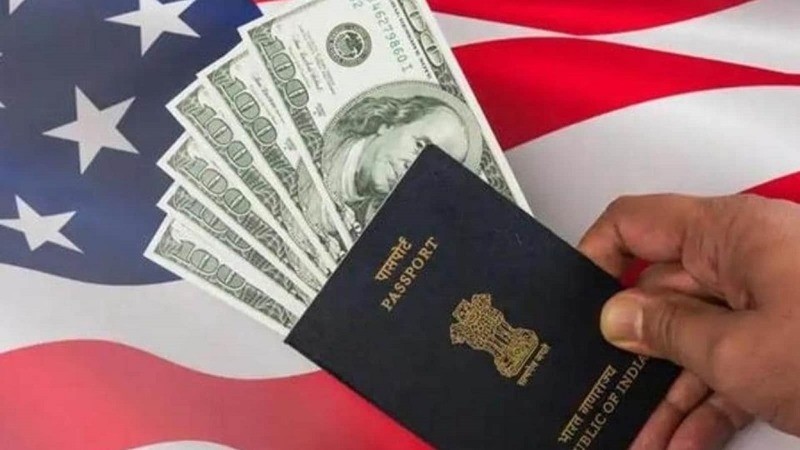
The United States is preparing to roll out significant reforms to the H-1B visa program starting January 17, 2025. These changes aim to enhance efficiency, transparency, and fairness, according to the U.S. Department of Homeland Security (DHS). A key highlight is the introduction of a U.S.-based visa renewal program for H-1B holders, a move expected to significantly benefit Indian professionals.
New Visa Renewal Process for H-1B Holders
The new renewal system will allow H-1B visa holders to extend their visas without leaving the U.S. Previously, many Indian workers in specialty occupations were required to return to India for visa restamping, causing delays and logistical challenges.
The Department of State piloted this initiative in 2024, successfully simplifying the renewal process for thousands of applicants. "We are now working to establish a formal, U.S.-based renewal program in 2025," stated the U.S. Embassy in India.
This change is especially beneficial for Indian nationals, who constitute the majority of H-1B visa holders. In 2023, they accounted for 72.3% of the 386,000 H-1B visas issued.
Key Updates to the H-1B Visa Program
The updated regulations address long-standing concerns of employers, employees, and advocacy groups. Major changes include:
Revised Cap-Exempt Criteria:
Nonprofit and government research organizations will qualify as cap-exempt if their core activities involve research. This replaces the older, ambiguous requirement of being "primarily engaged" in research.
Simplified F-1 to H-1B Transitions:
Students on F-1 visas moving to H-1B status will experience fewer disruptions in employment authorization and legal status.
Faster Processing Times:
The U.S. Citizenship and Immigration Services (USCIS) has committed to expediting applications for H-1B extensions, reducing the burden on workers and employers.
Flexibility for Employers:
Businesses will be able to hire H-1B workers based on specific needs, enabling more dynamic workforce planning.
Stronger Oversight Against Misuse:
Measures will include enhanced inspections, penalties for non-compliance, and stricter eligibility checks.
Updated Petition Forms:
A revised Form I-129, aligned with the new regulations, will be required from January 17, 2025.
Year-Round Cap Exemptions:
Organizations like universities, affiliated nonprofit entities, and research institutions will be able to submit petitions throughout the year without numerical limitations.
Measures to Curb Lottery Abuse
To address concerns about fairness in the H-1B lottery system, stricter regulations will be introduced to prevent organizations from submitting bulk applications. This ensures genuine applicants have a fair chance.
Some families, deterred by the unpredictability of the H-1B lottery, are exploring alternatives like the EB-5 visa program, which provides a pathway to U.S. residency through investment.
Decline in H-1B Approvals for Major Employers
H-1B approvals have decreased for major sponsors, including Amazon, Infosys, and Tata Consultancy Services (TCS). Amazon reported a drop from over 11,000 approvals in 2023 to just over 7,000 in 2024. Similarly, Infosys and TCS experienced reductions of 1,400 and 1,600 approvals, respectively. However, companies like Meta saw an increase, driven by their focus on emerging technologies.
Economic Contributions of H-1B Workers
H-1B professionals have been instrumental in driving U.S. economic growth, particularly in technology and healthcare. Between 2010 and 2019, over 3,300 H-1B scientists contributed to the development of COVID-19 vaccines at companies like Moderna and Johnson & Johnson. Medical professionals on H-1B visas also played critical roles during the pandemic.
While critics argue that H-1B workers take jobs from American citizens, proponents emphasize their contributions to innovation and job creation. A report by the American Immigration Council highlighted that H-1B workers complement the domestic workforce and stimulate economic growth.